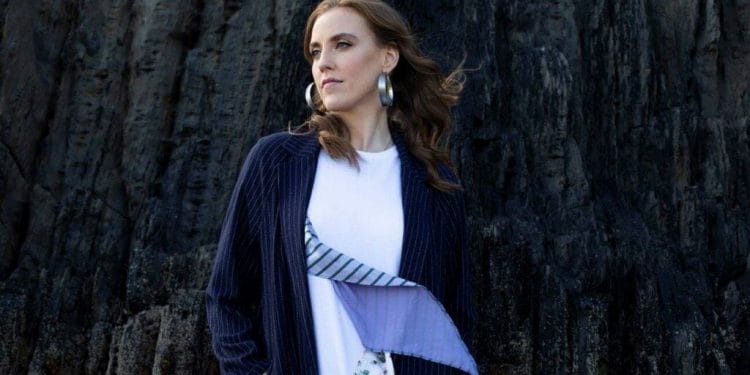Landmark Productions and The Everyman’s adaptation of Louise O’Neill’s devastating novel about sexual consent makes its UK premiere at Birmingham Repertory Theatre from 29th January following huge acclaim, including a sold-out season at Ireland’s National Theatre, The Abbey. Asking For It was also a landslide winner of the Audience Choice Award at The Irish Times Irish Theatre Awards for 2018.
Asking For It, written for young adults but widely read, caused a sensation when it was first released. Selling in huge quantities, it won Book of the Year at the Irish Book Awards in 2015 and spent 52 weeks in the Irish top 10.
Asking For It, which has been adapted from your novel is coming to Birmingham Rep, what can you tell us about it?
Asking For It was first published in 2015. The novel tells the story of Emma O’Donovan, a young woman growing up in a small town in west Cork. She’s beautiful, popular; loved and feared in equal measures by her friends. At a party one night, she gets high and drunk and when she regains consciousness the next morning, she’s been thrown on the front porch of her family home with no recollection of how she got there. It’s only when photos begin to circulate on social media that Emma learns she’s been the victim of a brutal sexual assault the night before. The novel –as the play – is divided into two halves, before the rape and afterwards, and explores the corrosive ripple effect of sexual violence. It doesn’t just impact the victim, it affects their family and friends, as well as the community at large.
What inspired you to write the novel, and did you ever envisage it as a stage play?
The novel was inspired by a number of real-life incidents, but the story that had the greatest impact upon me was the Steubenville case in the US. A young girl at a party, incapacitated by alcohol, was publicly assaulted by members of the local football team while photographs and videos were taken and uploaded online. What was most striking to me about this case was the reaction of the local community, and how the story was talked about in the media. A reporter for CNN commented that it was “incredibly difficult” to “watch what happened as these two young men that had such promising futures, star football players, very good students, literally watched as they believed their lives fell apart.”
I had heard the term ‘rape culture’ before then but it was in that moment that I truly understood what it meant. I was angry and frustrated and I felt utterly powerless – that was when I knew I would have to write about this issue in some way, if only to exorcise it out of my system.
I didn’t envisage Asking For It as anything other than a book, so to see it have a second life as a play has been enormously exciting. With hindsight, I can see how the structure of the book lends itself rather well to a play, with two acts and a natural break in the middle for the interval, but that didn’t occur to me while I was writing.
Were you surprised by the reaction to your novel when it was published?
Yes. Obviously, I was hoping to start a conversation about the way our culture views women – their sexuality, the prevalence of violence, slut shaming, and victim blaming – when I wrote the novel, but as an author, you have no way of controlling how loud that conversation becomes. Luckily for me, I was standing on the shoulders of giants, walking down a path that had been cleared for me by the amazing activists that had gone before. Ultimately, I think that the book came at just the right time. People were ready to have this conversation and art, whether that’s a book or a play, is often a very powerful way of facilitating those conversations.
What has impressed you most about the stage adaptation?
Where do I begin?! I’ve always loved the theatre (I come from a town where amateur drama is treated like a religion; my dream was to become an actor when I left school) so to have my novel adapted for stage has been one of the greatest moments of my career thus far. The quality of this production has blown me away, from the ingenuity of the set and video design to the sensitivity with which the subject matter has been treated, not to mention the calibre of the acting talent. It’s the very best of young Irish actors, the next Saoirse Ronan or Cillian Murphy is likely to be found on that stage. It’s an extraordinary piece of theatre, one of the best productions I’ve seen in years.
What would you say to anyone thinking of coming to see Asking For It?
Buy your tickets immediately! I understand that the idea of seeing a play about sexual violence might seem a daunting prospect, but Asking For It is so utterly compelling, full of vitality and electricity, that you never feel burdened by the weight of the subject. The reaction of Irish audiences has been astonishing – it’s broken box office records, it won the Audience Choice award at the Irish Times Theatre Awards by a landslide – and there was a collective sense of catharsis each night it performed, as if we were all in it together, bearing witness to this important story. I truly believe this is going to be the next great Irish play. This is your opportunity to say in years to come that you were there at its UK premiere.
Main Image: Louise ONeill. Photo by Clare Keogh.
















